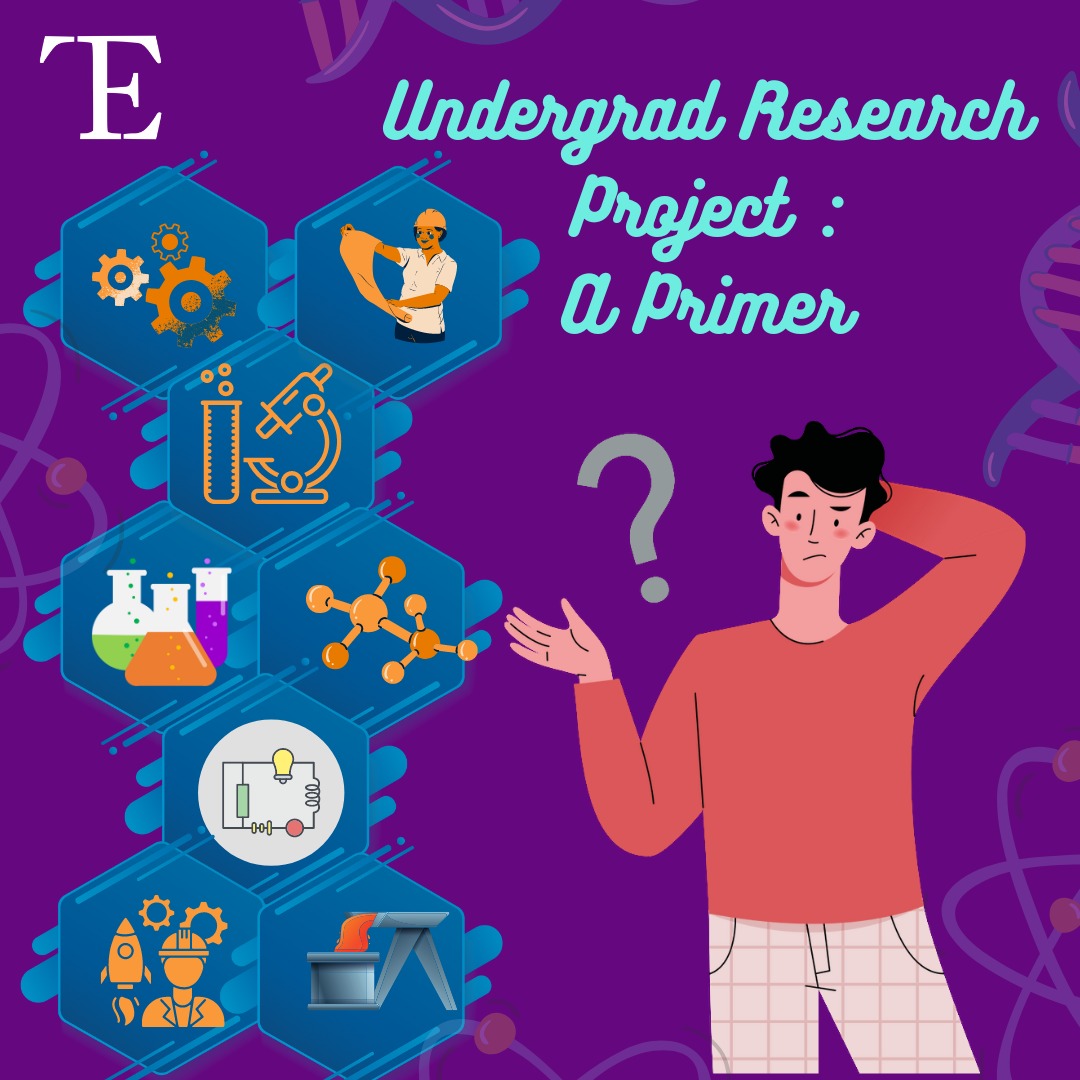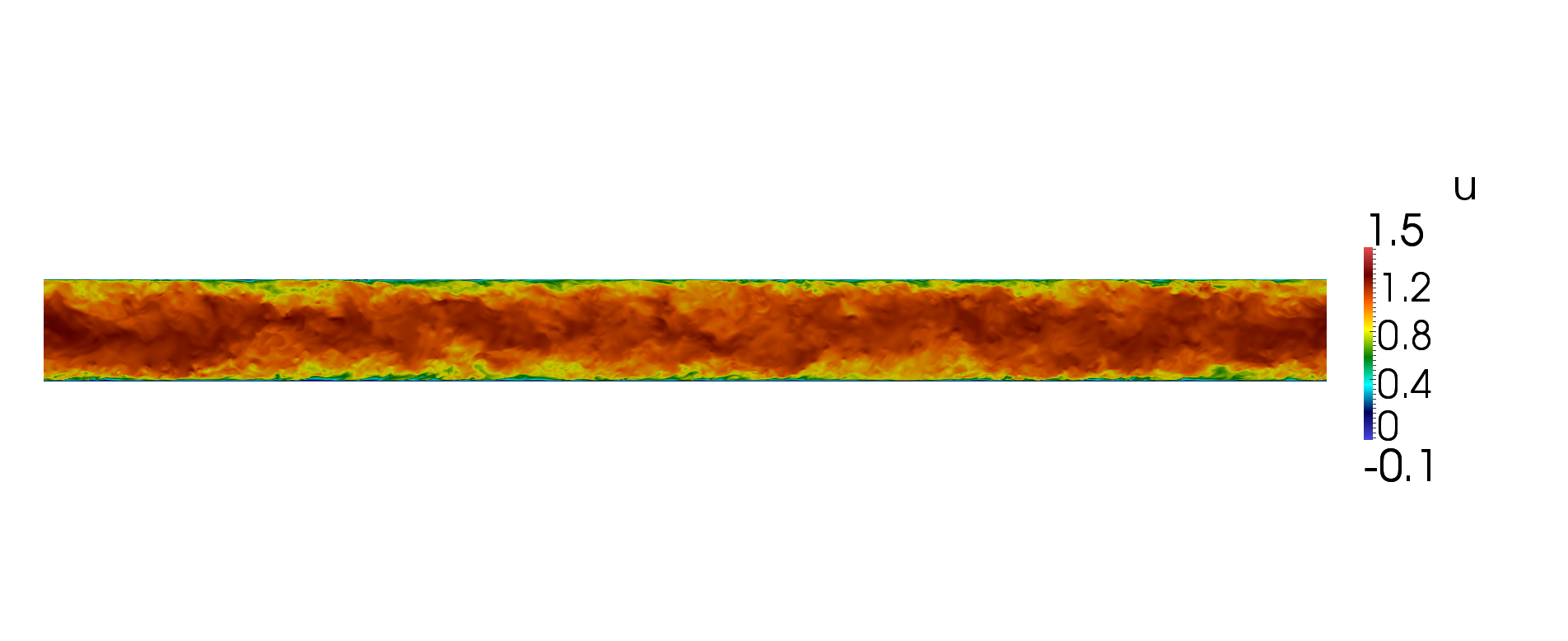Edited by Nalli Sai Soumya | Design by Shyam Sharma
“I’ve always wanted to do a project under a prof, but it’s too much pain. How do I even get started? Who do I talk to? Will profs even reply to my mails?” If these worries have stopped you from giving research a go, fret no more! We at T5E have interviewed students pursuing research in order to understand the opportunities and motivations involved in undergraduate projects.
The bare-bones introduction to research for most students in Insti comes from doing a course project that is technically involved. However, this barely scratches the surface in terms of what Insti has to offer when it comes to research. Insti provides a variety of avenues to undergraduate students who wish to give research a go.
Why do undergraduate research projects
Research as a process fundamentally differs from the corporate approach taken to problem-solving by most companies or the theoretical knowledge imparted by courses. It allows you to explore a field of your choosing in great depth and usually more freedom is given to you to experiment as compared to the usual corporate setup.
“I enjoyed the independence that came along with it: I was the owner of my problem statement and whatever happened to it.” –Sameer
A research project is usually carried out with a professor’s direct or indirect guidance through graduate scholars working under them. Some also choose to undertake research within a corporate environment, but even this route is often taken with the help of a professor. In addition, many projects result in the publishing of research papers. This is a valuable addition to a resume, both while applying for a job and when applying to premier universities for higher education. For example, most doctoral programs expect substantial research experience in the form of publications.
In a previous article, T5E explored the impact of research on the career choices available. In general, research experience is valued by both academia and industry due to the problem-solving skills it enables one to develop. Finally, Insti provides a lot of opportunities and support to students interested in research. Such experiences are difficult to get once you graduate.
“While not all the professors at IITM need not be excellent teachers, I am sure all of them are excellent researchers.” –Arnhav
Choosing a field of study
Both interviewees chose their field of study based largely on their academic interests. Whether you would like to make an impact in a specific field, you wish to venture into unknown territory in some field, or you are interested to know more about a topic that you came across in a course, undertaking a research project is a great way to do so.
Even if you have multiple interests, it is possible to find a field that combines those interests or to explore all your interests through individual projects. You can then choose one field to work in further.
Choosing a professor
Once the field of interest is chosen, it is possible to find professors that work in that field, be it within IIT Madras or elsewhere. Based on how closely their work matches your interests, one can narrow down to a list of two to three. Both interviewees prioritized the work done by the professor over seniority or industry connections.
“The accomplishments and connections of a professor are important, but I was more concerned with the work that he or she is doing because in Insti all the profs are accomplished in some way or the other.” -Sameer
The process of narrowing down professors can also be accomplished by looking at how many papers the professor has published in your field of interest, how often they are willing to work with undergraduate students, the number of students they have working with them and the like. It may be valuable to talk to the students working under a professor to gauge whether their style of work is suitable for you. For example, they can tell you how much time the professor is willing to give to each student or what kind of resources the professor provides the students with.
Using metrics such as the h-index must be done with caution. A more senior professor may have a higher h-index, but may also be willing to give less time to a student. On average, professors working in a hotly researched field tend to have higher h-indices than those working in a more niche field that might interest you. H-index might be useful only to compare professors of a similar level of seniority working in a similar field. Accordingly, be careful to use such metrics where they are applicable.
“Once you narrow down by field and by the level of seniority of the professor, you won’t have too many candidate professors to work with. You could use h-index as a tie-breaking factor at most perhaps.” -Arnhav
Applying for a project
The interviewees strongly recommended exploring avenues crediting research experience within the institute such as the Young Research Fellowship (YRF), Undergraduate Research Credits (UGRC), or Bachelor’s Thesis Projects (BTP). These allow you to explore research while also obtaining credits for the effort involved. Some of these programs also give you a set of projects that are available and have a streamlined application process (YRF, BTP). This may help in simplifying your application process. They can also provide guidance in starting research work, which is valuable for a novice (YRF).
“YRF offers much more than UGRC: three professors came in and gave us guidance, including how to read papers, how to approach a research project and how to do research.” Sameer
Applying for research projects in colleges abroad, be it through mailing individual professors or through programs such as MITACS, CHARPAK, DAAD, etc. are a great way to explore niche fields that may not have a professor working in them in Insti, and to obtain research experience in a foreign set-up.
Arnhav also recalls tips from a CMU professor on applying for a project, “Look at papers the professor has published in the last five years or so. A professor is usually working on three of four directions of research. Identify the ones that fit your interests and read one related paper in detail. Read the abstract, introduction, and conclusion of the rest. After that mail the professor informing them that you have read these papers and would like to work with them in this field. Be sure to include details from their papers.”
It may be beneficial to attach your CV, which includes the coursework you have done in addition to past projects and corporate experience. This may help the professor decide whether you are a good fit for the project. You may also want to suggest a line of work if you have one in mind: you could for example pick one from the further work section of a professor’s papers.
“Do not hesitate to reach out to professors. You don’t need to be an expert on the topic or be on friendly terms with the prof. Just approach the prof and tell them you are interested in working with them.” -Sameer
Balancing with academics or extracurriculars
Research can be regarded as coursework with a set amount of credits. As IIT Madras allows research to be credited, the burden of a project can be reduced by swapping out coursework for credited research.
“One of my seniors told me that to truly excel in research, once you start a project you need to spend an hour researching for every hour spent on coursework.” -Arnhav
Certain projects may also require intensive effort for short periods of time. This is especially true for experimental work. Furthermore, if you wish to publish a paper you might need to put in more hours during the drafting process in order to meet publication deadlines. These can also be other factors to consider. Sameer tells us, “Making ceramics is a three-day process and once I start, I can’t stop the work till it’s done. I had planned to take breaks and stretch it out but my senior informed me that I would have to work continuously.”
What to expect out of a research project
Undergraduate projects in specific enable one to learn how research in general works, and whether they are suited to the field. Unlike coursework, research projects equip one with the ability to apply their knowledge to solving a problem.
“In a course, you can skip topics you don’t like. That’s not possible in research. You have to delve deep so you can understand your problem statement. You need to read what it takes to get the job done.” -Sameer
The interviewees agreed on the point that doing research shapes your career choices down the line. Some caveats involved with research work are that it’s a lot more of a solitary field. You may not have others working on the same problem to approach if you get stuck. There’s also no guarantee that your efforts will give you meaningful results. You may need to change your mindset in order to adapt to these issues.
“Sometimes research tends to be a bit of a solo venture. To counteract this you should talk a lot with your professors. If there are scholars in the group working on a similar topic approaching them can be very helpful.” -Arnhav
Final thoughts
Regardless of personal biases against your branch coursework or vendettas against that professor you hate, doing a research project is an experience unlike any other. Both interviewees wholeheartedly recommend taking advantage of the resources IIT Madras provides to encourage UG students to get exposed to research. Maybe you want to give your branch one last shot before you abandon it for a non-core job. Or maybe you want a bonafide academia experience before you join the corporate grind. You could be seriously considering working in an academic or an R&D set-up. No matter your motivation, undergraduate projects are a great way to dip your toes into research.
T5E would like to acknowledge the valuable contributions of the following students:
Arnhav Datar, CS18: Primary interests – randomized algorithms and theoretical machine learning. Paper selected for NeurIPS. Currently pursuing a Master’s at CMU.
Sameer N. Soni, MM18: Primary interests – battery technology and nuclear energy. YRF fellow. Currently working on a Dual Degree Thesis project at IIT Madras.




